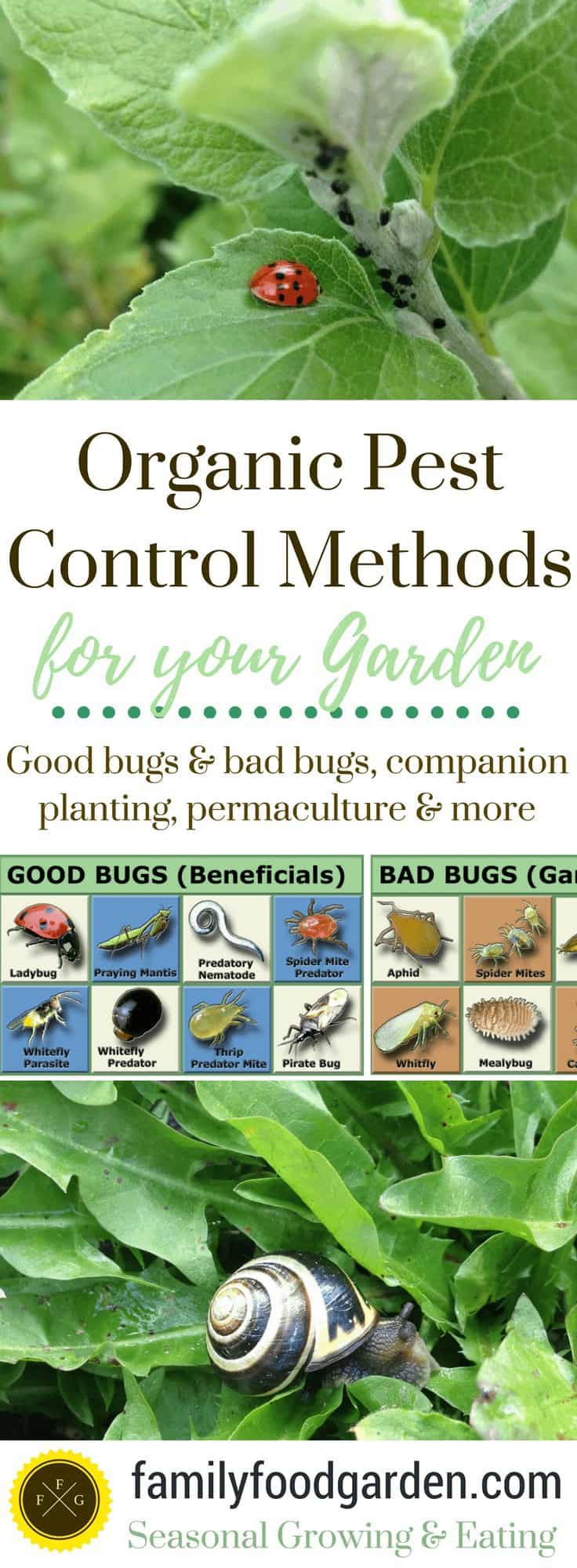Organic Gardening, Top Pest Control Methods

Organic Gardening: Top Pest Control Methods for a Thriving Garden
Gardening is more than just a hobby; it's a way to connect with nature and enjoy fresh, homegrown produce. But let's face it, garden pests can be a real buzzkill. Before you reach for the heavy-duty chemicals, consider this: organic gardening pest control methods are not only eco-friendly but also sustainable and safe for your family and pets. So, let's dive into the world of natural repellents and organic pesticides!
Why Choose Organic Pest Control?
Imagine your garden as a peaceful kingdom. Would you rather defend it with a barrage of chemicals or clever, eco-friendly tactics? Organic pest control methods do more than just deter critters; they maintain the natural balance of your garden's ecosystem. Plus, you won't have to worry about harmful residues on your fruits and veggies.
Understanding Garden Pests
First things first, who are these pesky invaders? Garden pests come in all shapes and sizes, from tiny aphids to robust tomato hornworms. Each has its own preferences and lifecycle, so it's crucial to identify the culprit before choosing your defense strategy.
Prevention: The First Line of Defense
Healthy Soil, Healthy Plants
The best offense is a good defense, right? It's no different in organic gardening. Start with rich, healthy soil to grow strong, resilient plants. Composting and crop rotation are your secret weapons here.
Choose the Right Plants
Some plants are naturally pest-resistant. Do your research and pick varieties less likely to attract critters. Also, diversity is key – mixing up your plants can confuse pests and make it harder for them to spread.
Keep Your Garden Clean
Pests love clutter, so keep your garden tidy. Remove dead leaves, weeds, and fallen fruits. This not only deters pests but also prevents diseases.
Top Organic Pest Control Methods
Beneficial Insects: Nature's Bodyguards
Not all bugs are bad news. Beneficial insects like ladybugs, lacewings, and praying mantises can be your garden's best friends. They feast on pests and help keep the population under control. Attract them with pollen and nectar-rich plants, or even order them online!
Organic Pesticides: Gentle yet Effective
Organic pesticides are derived from natural sources and are generally safer than synthetic ones. Here are a few to try:
- Neem Oil: Made from the seeds of the neem tree, this oil disrupts the lifecycle of many pests.
- Diatomaceous Earth (DE): This powder is made from fossilized algae and works by physically damaging pests.
- Insecticidal Soap: A simple mixture of soap and water can be effective against soft-bodied pests like aphids and mites.
Natural Repellents: Smell You Later, Pests!
Some scents that we love are absolute turn-offs for pests. Plant strong-smelling herbs and flowers like mint, lavender, and marigolds strategically around your garden. You can also make sprays using essential oils or garlic and hot pepper mixtures.
Physical Barriers: Build a Wall
Sometimes, the simplest methods are the most effective. Netting, row covers, and collars can physically prevent pests from reaching your plants. Copper tape is also great for deterring slugs and snails.
Companion Planting: Friends with Benefits
Some plants just go better together. Companion planting involves pairing plants that benefit each other, whether by deterring pests, improving soil, or enhancing flavor. For example, planting basil with tomatoes can help repel tomato hornworms.
Biological Control: Fight Fire with Fire
Using natural predators and parasites to control pests is a clever strategy. Bacillus thuringiensis (Bt) is a bacterium that infects and kills certain pests. Milky spore is another option for targeting Japanese beetle grubs.
Traps and Lures: The Art of Deception
Outsmart pests with traps and lures. Sticky traps, pheromone traps, and even simple homemade traps can capture or distract pests, keeping them away from your precious plants.
When to Call in the Pros
Sometimes, despite our best efforts, pests get the upper hand. Don't hesitate to reach out to professionals if you're feeling overwhelmed. They can provide expert advice and eco-friendly solutions. Check out this guide from Gardeners.com for more tips on controlling pests.
Conclusion
Organic gardening pest control methods are not just about avoiding chemicals; they're about working with nature, not against it. By understanding your garden's ecosystem and using a combination of preventive measures and natural solutions, you can create a thriving, sustainable garden. So, roll up your sleeves, get your hands dirty, and enjoy the fruits of your labor – literally!
FAQs
Q: What is the best organic pesticide?
A: The "best" organic pesticide depends on the pest you're dealing with. Neem oil, diatomaceous earth, and insecticidal soap are all great options for different situations.
Q: How can I attract beneficial insects to my garden?
A: Plant a variety of pollen and nectar-rich flowers, and provide shelter with plants like tall grasses and hedges. You can also buy beneficial insects online and release them in your garden.
Q: Are organic pesticides safe for pets and children?
A: Generally, yes. Organic pesticides are much safer than synthetic ones. However, it's always a good idea to keep pets and kids away from treated areas until the spray has dried.
Q: What if organic methods aren't working?
A: If you're struggling with pests, it might be time to call in a professional. They can provide expert advice and additional eco-friendly solutions.
Q: Can I make my own organic pesticides?
A: Absolutely! Many organic pesticides can be made at home using simple ingredients like soap, garlic, and hot peppers. Just be sure to do your research and test sprays on a small area first to avoid damaging your plants.
0 Response to " Organic Gardening, Top Pest Control Methods"
Post a Comment